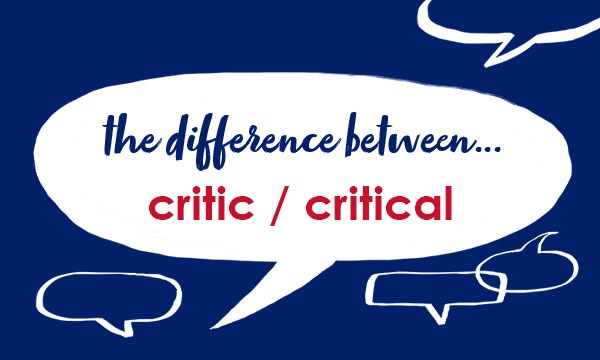This week we are looking at two words which may be confused by learners of English: critic and critical.
critic

Critic /ˈkrɪtɪk/ is a noun.
A critic is a person who writes reviews and gives opinions in newspapers or on television about books, films, music, or art.
What did the New York critics have to say about the production?
Most critics gave the play a good review.
critical

Critical is an adjective with several meanings.
If you are critical of someone or something, you show that you disapprove of them.
His report is highly critical of the judge.
She apologized for her critical remarks.
A critical time or situation is extremely important, or very serious or dangerous.
The incident happened at a critical point in the campaign.
The authorities are considering an airlift if the situation becomes critical.
If a person is critical or in a critical condition, they are seriously ill.
Ten of the victims are said to be in a critical condition in hospital.
Find out more in our English Usage article.
This blogpost is based on Collins COBUILD English Usage, written for learners of English. For more examples of English usage points, please visit: https://grammar.collinsdictionary.com/english-usage.
All opinions expressed on this blog are those of the individual writers, and do not necessarily reflect the opinions or policies of Collins, or its parent company, HarperCollins.




collins_dictionary_official
The home of living language. #wotd #wordlovers #collinsdictionary
Read our word of the week definitions and blog posts: